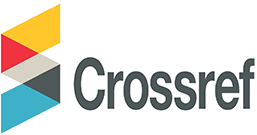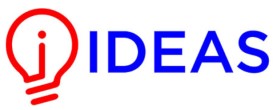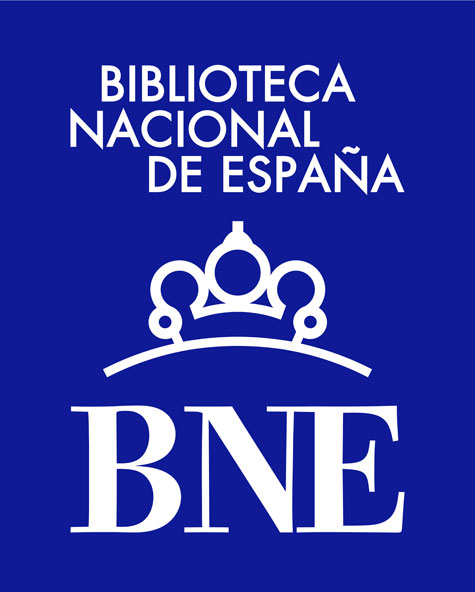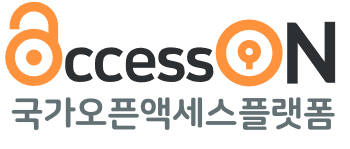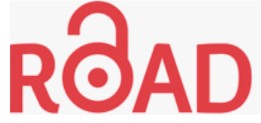The collapse of the Self. Towards an education for interior emancipation
DOI:
https://doi.org/10.51896/easc.v2i1.545Keywords:
Education, self-exploitation, inner emancipation, ego, conscience, radical and inclusive paradigm, contemplative lifeAbstract
The article reflects on the need to free the self from the egoic self-exploitation fostered by competitiveness, capitalist consumption and the scientific-technical values of rationality that current education promotes. By focusing only on competency performance, it prevents awareness of the inner reality to achieve self-emancipation, as well as emancipation through social change. This essay aims to elucidate the mechanisms of internal oppression that end up exhausting the self, fostered by unlimited desire and egotic self-affirmation. Thus, the individual would tend to get sick due to excessive self-demand and the lack of full awareness that allows him to emancipate himself internally. A possible solution would come from the application of the radical and inclusive paradigm, which would promote the evolution of the human being through the renunciation of the egotic self towards greater consciousness, to find internally the peace, wisdom and compassion necessary to jointly change the external world and community.
Downloads
References
Adorno, T. (2002). Educación para la Emancipación: Conferencias y conversaciones con Hellmut Becker (1956-1969). Morata.
Anderson, L. (2018). Competency-Based Education: Recent policy trends. The Journal of Competency-Based Education, 3(1), 1-5. https://doi.org/10.1002/cbe2.1057
Arendt, H. (2005). La condición humana. Paidós.
Arias-de la Torre, J., Vilagut, G., Martín, V., Molina, A. J. & Alonso, J. (2018). Prevalence of major depressive disorder and association with personal and socio-economics factors. Result for Spain of the European Health Interview Survey 2014-2015. Journal of Affective Disorder, 239, 203-207. https://doi.org/10.1016/j.jad.2018.06.051
Baudrillard, J. (2005). Cultura y simulacro. Kairós.
Bauman, Z. (2000). Liquid Modernity. Polity Press.
Bauman, Z. (2004). Wasted lives. Polity Press.
Botha, F., Morris, R. W., Butterworth, P. & Glozier, N. (2023). Generational differences in mental health trends in the twenty-first century. PNAS, 120(49), 1-8. https://doi.org/10.1073/pnas.2303781120
Bourdieu, P. & Passeron, J. C. (2018). Reproducción: elementos para una teoría de un sistema educativo. Siglo XXI.
Buda. (1997). Dhammapada o las enseñanzas de Buda. FCE.
Debord, G. (2000). La sociedad del espectáculo. Pretextos.
Deleuze, G. & Guattari, F. (2009). El antiedipo: Capitalismo y esquizofrenia. Paidós.
Erasmus of Rotterdam. (2003). In praise of folly. Del Prado.
European Comission. (2018). Council recommendation of 22 May 2018 on key competences for lifelong learning. Official Journal of the European Union, 189(1), 1-13. https://eur-lex.europa.eu/legal-content/EN/TXT/PDF/?uri=CELEX:32018H0604(01)&rid=7
Fox, K. C., Nijeboer, S., Dixon, M. L., Floman, J. L., Ellamil, M., Rumak, S. P., Sedlmeier, P. & Christoff, K. (2014). Is meditation associated with altered brain structure? A systematic review and meta-analysis of morphometric neuroimaging in meditation practitioners. Neuroscience & Biobehavioral Reviews, (43), 48-73. https://doi.org/10.1016/j.neubiorev.2014.03.016
Foucault, M. (1976). Vigilar y castigar. Siglo XXI.
Freire, P. (2012). Pedagogía del oprimido. Siglo XXI.
Freud, A. (1980). El yo y los mecanismos de defensa. Paidós.
Freud, S. (2010). El malestar de la cultura. Alianza Editorial.
Fromm, E. (1987). El miedo a la libertad. Paidós.
Fromm, E. (1991). Del tener al ser. Caminos y extravíos de la conciencia. Paidós.
Fromm, E. (2012). La revolución de la esperanza. Hacia una tecnología humanizada. FCE.
Fuente, L. & Herrán, A. de la. (2021). Yoga y formación del profesorado. Revista Iberoamericana de Educación, 85(2), 73-94. https://doi.org/10.35362/rie8523936
Han, B.-Ch. (2016). La sociedad del cansancio. Herder.
Han, B.-Ch. (2017). La expulsión de lo distinto. Herder.
Han, B.-Ch. (2020). Las caras de la muerte. Investigaciones filosóficas sobre la muerte. Herder.
Han, B.-Ch. (2023). Vida contemplativa. Elogio de la inactividad. Taurus.
Haraway, D. (2020). Manifiesto ciborg. Kaótica.
Hawi, N., & Samaha, M. (2019). Identifying commonalities and differences in personality characteristic of Internet and social media addiction profiles: traits, self-esteem, and self-construal. Behaviour & Information Technology, 38(2), 110–119. https://doi.org/10.1080/0144929X.2018.1515984
Herrán, A. de la. (1993). La educación del siglo XXI. Cambio y evolución humana. Ciencia 3.
Herrán, A. de la. (1997). El ego humano. Del yo existencial al ser esencial. San Pablo.
Herrán, A. de la. (1998). La conciencia humana. Hacia una educación transpersonal. San Pablo.
Herrán, A. de la. (2011). Reflexiones para una reforma profunda de la educación, desde un enfoque basado en la complejidad, la universalidad y la conciencia. Educación XX1, (14), 245-264. http://revistas.uned.es/index.php/educacionXX1/article/view/271/227
Herrán, A. de la. (2014). Enfoque radical e inclusivo de la formación. REICE, 12(2), 163-264. http://www.rinace.net/reice/numeros/arts/vol12num2/art8.pdf
Herrán, A. de la. (2018). Fundamentos para una Pedagogía del saber y del no saber. Hipótese. https://goo.gl/owwaW4
Herrán, A. de la. & Rodríguez, P. (2023). Algunas meditaciones para reiniciar la Didáctica General. En Medina, A. & Herrán, A de la. (coords.), Futuro de la Didáctica General (pp. 93-220). Octaedro. https://octaedro.com/producto/futuro-de-la-didactica-general/
Herrán, A. de la. & Xu, R. (2023). ¿Qué pueden aportar las enseñanzas de los clásicos del Tao a la educación occidental? Tesis Doctoral inédita leída en la Universidad Autónoma de Madrid, Facultad de Formación del Profesorado y Educación, Departamento de Pedagogía. http://hdl.handle.net/10486/712326
Holmes, W. (2023). The Unintended Consequences of Artificial Intelligence and Education. Education International Research. https://www.ei-ie.org/file/740
Ingenieros, J. (2013). El hombre mediocre. Tecnibook.
Kohut, H. (1986). Análisis del self. El tratamiento psicoanalítico de los trastornos narcisistas de la personalidad. Amorrortu.
Krishnamurti, J. (1994). La libertad interior. Kairós.
Lao, T. (1983). Tao te ching. Orbis.
Lepp, A., Barkley, J. & Karpinski, A. (2014). The relationship between cell phone use, academic performance, anxiety, and Satisfaction with Life in college students. Computers in Human Behavior, (31), 343-350. https://doi.org/10.1016/j.chb.2013.10.049
Lie, Z. (2016). Lie Zi: el libro de la perfecta vacuidad. Kairós.
Lyotard, J. (2006). La condición postmoderna. Cátedra.
Marx, K. (2013). Manuscritos económicos y filosóficos. Alianza Editorial.
Moussavi, S., Chatterji, S., Verdes, E., Tandon, A., Patel, V. & Ustun, B. (2007). Depression, chronic diseases, and decrements in health: results from the World Health Surveys. The Lancet, 370(9590), 851-858. https://doi.org/10.1016/S0140-6736(07)61415-9
Nietzsche, F. (2015). El nacimiento de la tragedia. Editores Mexicanos Unidos.
Platón (1969). La república. Instituto de Estudios Políticos.
Preciado, P. B. (2008). Testo yonqui. Sexo, drogas y biopolítica. Espasa.
Rot, M. (2023). Infoxicación. Paidós.
Rogers, A. P. (2023). Exploring secondary teachers’ perspectives on implementing competency-based education. The Journal of Competency-Based Education, 6(4), 1-11. https://doi.org/10.1002/cbe2.1265
Sabbi, C. R. (2020). Pedagogia radical e inclusiva: nas trilhas de elementos educativos para uma cidadania mais consciente. Tesis doctoral. Universidad Autónoma de Madrid-Universidade de Caxias do Sul, Madrid (España), Caxias do Sul (Brasil). http://hdl.handle.net/10486/696741
Saigyo. (1989). Espejo de la luna. Miraguano.
Schopenhauer, A. (2015). El amor, las mujeres y la muerte. Editores Mexicanos Unidos.
Séneca. (2011). Moral letters to Lucilius. Michael Hussey.
Stephan, D. (2023). Animal ancestral. Hacia una política del amparo. Herder.
Tumsa, D. R. (2022). Review of epistemological and methodological debates of educational research and its links to theoretical perspectives in education. Journal of Education and Practice, 13(28), 1-8. https://doi.org/10.7176/JEP/13-28-01
Turkle, S. (1997) La vida en la pantalla: La construcción de la identidad en la era de internet. Paidós.
Valerio, G. & Serna, R. (2018). Redes sociales y bienestar psicológico del estudiante universitario. REDIE, 20(3), 19-28. https://doi.org/10.24320/redie.2018.20.3.1796
Weiner, B., Nierenberg, R. & Goldstein, M. (1976). Social learning (locus of control) versus attribution (unusual estability) interpretations of expectancy of success. Journal of Personality, 44(1), 52-68. https://doi.org/10.1111/j.1467-6494.1976.tb00583.x
Wilber, K. (2008). La visión integral. Introducción al revolucionario enfoque sobre la vida, Dios y el Universo. Kairós.
Zeeni, N., Doumit, R., Abi Kharma, J. & Sanchez-Ruiz, M. J. (2018). Media, technology use, and attitudes: Associations with physical and mental well-being in youth with implications for evidence-based practice. Worldviews on Evidence-Based Nursing, 15(4), 304-312. https://doi.org/10.1111/wvn.12298
Zhuang, Z. (1996). Zhuang Zi. Kairós.
Published
Versions
- 2024-06-20 (2)
- 2024-06-05 (1)
How to Cite
Issue
Section
License

This work is licensed under a Creative Commons Attribution-NonCommercial 4.0 International License.
Usted es libre de:
- Compartir — copiar y redistribuir el material en cualquier medio o formato
- Adaptar — remezclar, transformar y construir a partir del material
Bajo los siguientes términos:
- Atribución — Usted debe dar crédito de manera adecuada, brindar un enlace a la licencia, e indicar si se han realizado cambios. Puede hacerlo en cualquier forma razonable, pero no de forma tal que sugiera que usted o su uso tienen el apoyo de la licenciante.
- NoComercial — Usted no puede hacer uso del material con propósitos comerciales.





